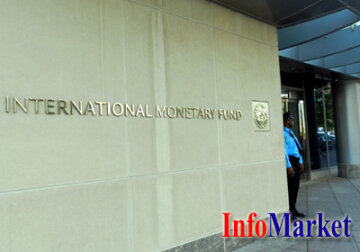
The IMF Executive Board has completed the first review of Moldova's financing program and will allocate a new tranche of $27 million.
The IMF reports that, among other things, its Executive Board has completed the first review of Moldova's current program, financed by the IMF through the 40-month Extended Credit Facility (ECF) and Extended Fund Facility (EFF). This allows for immediate disbursement to Moldova of about $27 million, which can be used to support the budget, bringing the total disbursement to the country under the mixed ECF/EFF arrangements to about $242 million. The IMF report notes that the effects of the war in Ukraine continue to affect Moldova's prospects. It is expected that our country's economy will stagnate in the near future, and inflation will remain high amid rising food and energy prices. Despite signs of stability, the current account and budget deficits are expected to increase significantly this year. Risks to the outlook remain exceptionally high, including those related to the regional energy crisis. Following discussions on Moldova within the IMF Executive Board, IMF Deputy Managing Director Kenji Okamura said that numerous challenges continue to weigh heavily on Moldova, including the impact of the war in Ukraine, the negative impact of skyrocketing inflation on purchasing power and energy security issues. As a result, Moldova's economic prospects remain subject to extremely high internal and external risks. "Despite these challenges, the authorities remain firmly committed to the Fund-supported program, which aims to support the vulnerable, while advancing governance reforms and addressing developmental needs to create conditions for sustainable and inclusive growth. They have successfully completed structural commitments on fiscal governance, financial sector oversight, and on strengthening anti-corruption legislation, and even included additional conditionality to support the fiscal structural agenda," the IMF Deputy Managing Director said. Maintaining this strong political momentum, he said, will be critical to securing additional grant and concessional funding from donors needed to finance one-time spending, maintain adequate fiscal reserves, and reduce dependence on short-term domestic financing. Continued implementation of reforms and contingency planning will also help Moldova build a solid foundation for strong and inclusive growth. "The authorities’ near-term efforts remain appropriately focused on curbing soaring inflation, while protecting the most vulnerable from escalating energy and food costs. Maintaining an appropriate policy mix will be critical going forward, given persistent inflationary pressures, budget financing constraints, and exceptional downside risks around the baseline. Furthermore, concerted efforts are needed to improve spending efficiency, foster budget credibility, mobilize domestic revenue, and advance energy and SOE reforms" said Kenji Okamura. He stressed that protecting the independence of the National Bank of Moldova is necessary to enhance the credibility and effectiveness of policies, especially in the current extremely uncertain environment. The Deputy Managing Director of the IMF stressed that in this regard, the early adoption of the law on strengthening the institutional autonomy of the National Bank of Moldova before the end of October is crucial. "Strengthening financial supervision and regulation also remains important, especially given vulnerabilities to the non-bank sector," Kenji Okamura said. Earlier it was reported that the IMF's 40-month program with Moldova, approved on December 21, 2021, provides for financial assistance totaling about $784 million. ECF financing is at zero interest rate with a grace period of 5.5 years and a final maturity of 10 years, while EFF financing has an interest rate equal to the SDR base rate, a maturity of 10 years and a grace period of 4.5 years. //22.09.2022 - InfoMarket.







